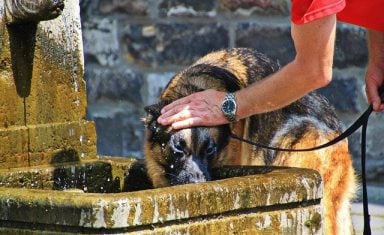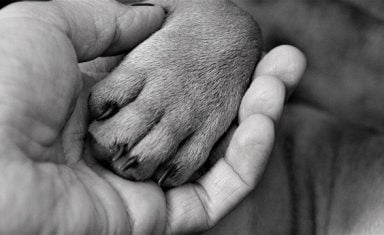Just like us, our pet’s kidneys perform vital functions. They remove toxic wastes the body, help conserve water, regulate blood pressure, and are involved in red blood cell production. Unlike many other organs in the body, kidneys do not have the ability to regenerate well once they have suffered an injury. Because of this, treating kidney disease early is important.
Kidney disease can be divided into two broad categories, acute or chronic. Acute means that the kidney abruptly stops working—this is obviously very bad. Chronic means this has been a slow ongoing process. Acute flare ups can lead to chronic disease, and chronic disease will likely become acute in time.
Acute kidney failure
Let’s talk about acute kidney disease first. This usually happens as the result of some other trigger. For instance, non-steroidal anti-inflammatory drugs can cause acute kidney failure. If your dog licks up some anti-freeze, kidney failure could occur. Lilies are known to cause kidney failure in cats. Diseases like kidney infections, auto-immune diseases, and cancer all also impact the kidneys. The good news is that if treated early with aggressive fluid therapy before clinical signs begin, many of these animals can be restored to full or close kidney function. The idea is to flush the kidneys of the infection, proteins, or toxin. Depending on the cause of failure, various other treatments will be utilized. If kidney failure can be prevented, many animals go on to have normal lives. If the animal shows up to the emergency room already in kidney failure, this means that damage has already been done to the organs. Since kidneys have a set number of filter cells that do not regenerate well, these animals are predisposed to developing chronic kidney failure.
Chronic kidney failure
Chronic kidney failure is much harder to treat. It involves a progressive loss of function, and it can only be detected when 2/3 of the filter cells in the kidney (nephrons) have died.
It can be caused by acute kidney failure, toxins, cancer, infectious disease, or autoimmune disease.
In many cases, by the time chronic kidney failure is diagnosed, the cause has already resolved and cannot be identified. Fluids are, again, the best treatment. Just like humans with chronic kidney failure, animals will need subcutaneous fluids every day for the rest of their lives. These patients are predisposed to anemia, electrolyte imbalances, and trouble maintaining a good appetite as toxins buildup in the blood. With aggressive care and vigilant monitoring, chronic kidney failure patients can live many months to many years.
Diagnosing Kidney Trouble
Your veterinarian has several tools at their disposal for diagnosing kidney trouble. First, biochemistry panels can reveal increasing blood urea nitrogen and creatine—telltale signs of kidney malfunction. A urinalysis can show protein in the urine and a low specific gravity. Electrolytes should be monitored. A urine/protein ratio should be considered also. These tests allow your veterinarian to stage the disease and decide the best way to initiate treatment.
This is one of the many reasons that veterinarians recommend yearly bloodwork and visits as patients grow older. If caught early, there is a much greater chance of your pet remaining healthy longer.
As mentioned above, chronic kidney failure is tough to detect until most of the kidney’s cells are dead. Many pets develop excessive drinking and urination. One of the most common signs is accidents in the house where a pet never had an accident before. Other signs include vomiting, diarrhea, lethargy, loss of appetite, and even constipation.
Some of the causes of kidney disease can be prevented with education. Do not have lilies in a feline household, clean up spills of antifreeze immediately, and proper storage of hazardous chemicals are just a few. The other causes may or may not be preventable, but early diagnosis is key to a good outcome.
For more information, contact our team at VETSS!




